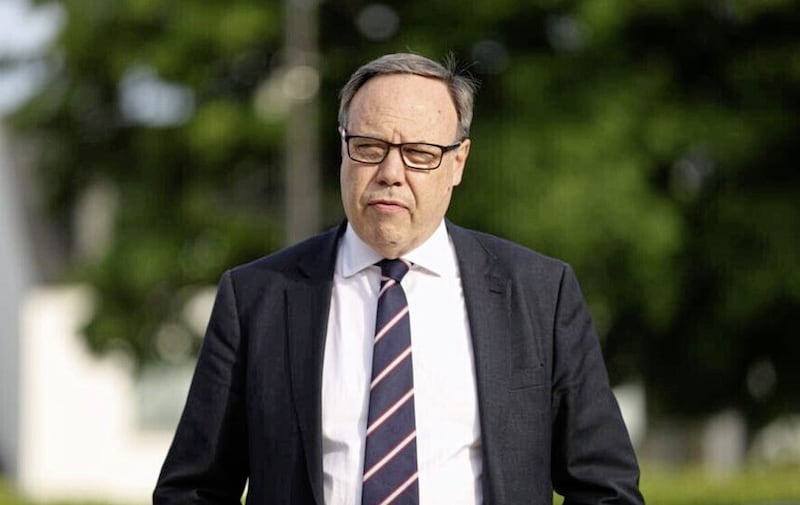The public is tired of the cycle of speculation and disappointment. They’re bored with the talk of seven tests, restoring the constitutional balance, and all the other arguments designed to distract us from the reason the DUP ended up in this bind, before choosing to take its ball home, paralysing power-sharing and further crippling public services.
Gung-ho support for Brexit and the numerous missteps that followed will haunt unionism forever. They are the ones responsible for upsetting the status quo by assuming crude majoritarism still applied. Walking backwards out of their own mess was never going to be easy and was always likely to result in collateral damage.
In the 11 months since the Windsor Framework, there have been countless occasions when we were led to believe Sir Jeffrey Donaldson was ready to move, yet every time there was an apparent slip between cup and lip. Once again things are seemingly heating up, and perhaps naively we can convince ourselves that this time it’s genuine but don’t be surprised if come February 8 we’re still waiting for Godot.
What appears genuine is the desire of the DUP leadership to get back into Stormont. They have acknowledged that the near-two year boycott of the institutions is counter-productive and that the alternatives to power-sharing will not be good for unionism. The difficulty for Sir Jeffrey and his allies is convincing the absolutists – Dodds, Morrow, Paisley, Wilson, et al – that pragmatism pays, whereas protest will lead to further marginalisation.

The British government appears to have done all it can to help make the climbdown more comfortable but ultimately it’ll require courage from a leader who’s not immediately associated with fearlessness and risk-taking. However, his demeanour in the House of Commons on Wednesday, during the debate on extending the deadline for the restoration of the institutions, suggests the normally mild-mannered Lagan Valley MP has finally lost patience with the sniping from those he shared an anti-protocol platform with not so long ago.
He appears willing to face down the TUV and elements that purport to represent loyalism but his immediate task is to win over a majority of the 12 party officers, which include three of the aforementioned hardliners. Perhaps the best Sir Jeffrey can hope for is an assurance that the two DUP peers and MP for East Antrim won’t criticise him publicly.
Before he gets to that stage, however, Gregory Campbell, Carla Lockhart and Edwin Poots, must be convinced of the deal’s merits, with the latter potentially earmarked as Stormont’s next agriculture minister in an effort to secure his support. The current mood music suggests the leadership has the numbers but that the internal agitators are still likely to try and make the landing as difficult as possible.
Once Sir Jeffrey has overcome the party officers, it’s understood he must also win the support of a full party executive that includes more than 100 MPs, peers, MLAs, councillors and card-carrying members.
The passing of the legislation extending the deadline for restoring the institutions, coupled with glimpses of a more steelier DUP leader, indicates there’s choreography at play that ensures, should everything go according to plan, we’ll be back on the hill within weeks. This time the alternative scenario is not more dithering but a likely irrevocable split within the DUP and the long predicted realignment of unionism.


